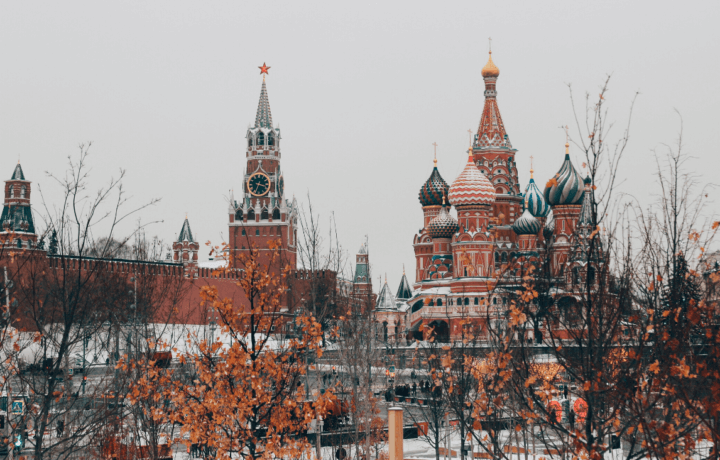This week’s Moscow Conference on Afghanistan made a shift from the October 2021 format that is making anti-Taliban Afghans feel slightly better. This year, Russia and the other members chose to exclude the Taliban-Haqqani Regime from attendance.
The attendees at the Moscow Format consultative meeting on Afghanistan include representatives of Russia, Pakistan, Kazakhstan, Kyrgyzstan, Tajikistan, Turkmenistan, China, India, Iran, and Uzbekistan. Last year, the Moscow Format was focused on the formation of an inclusive Afghan government, but this year, the conference members saw no movement on that issue.
At last year’s event, the Taliban-Haqqani participant pleaded with the international community to recognize the terror regime as the legitimate government of Afghanistan. No nation or international body has done so in the intervening months. This year the Pakistani special representative for Afghanistan affairs, seeming to beg for the Taliban-Haqqani regime, asked for the international community to regularly interact with the terror regime.
Pakistan is on its third attempt to set up an internationally-recognized puppet regime in Kabul, so it is not surprising that they remain focused on getting other nations and intergovernmental organizations to “cooperate with the Afghan authorities without prejudice.”
One reason for the exclusion of the Taliban-Haqqani regime from the forum is likely the failure of the illegal regime to protect neighboring countries from terror attacks in the last year. The Taliban-Haqqani attendee in 2021, a foreign affairs spokesperson named Hanafi, lied to the group. He had promised that there would be no threats against regional or international security from Afghanistan. Since that lie was spoken, terrorists have attacked Uzbekistan, Tajikistan, and Pakistan. Additionally, Al Qaeda’s leader was given full protection in the Afghan capital, and ISIS headquarters is believed to have moved from Syria/Iraq to Afghanistan.
Some in the U.S. and Europe have issues with the Russians holding these forums. Others have admitted that without NATO nations taking the lead to organize the region to take some responsibility for the insecurity in Afghanistan, Russian leadership is better than nothing, and might even move the dial towards reconciliation.
None of the statements by the attending nations and observers were out of line with their previous concerns, and they were certainly direct messages to the absent terror regime.
The Tajikistan envoy aired his nations concerns about the ongoing Taliban-Haqqani murders of Afghans of Tajik ancestry. He made it clear that Tajikistan believes the evidence being presented by citizens of the Panjshir Valley. Tajikistan called for the end of the mass killings of Tajik-Afghans. The Taliban-Haqqani targeting of Tajiks is usually based on accusations that the Afghans are in support of the National Resistance Front.
Saudi Arabia’s ambassador to Russia was in attendance at the meeting and reemphasized the Kingdom’s position that they want stability in Afghanistan and stand against “terrorism and extremism in all its forms.” Abdulrahman Al-Ahmed also hoped that international forums like this one could “help the Afghan people establish peace and stability in the country.”
The Russian President’s envoy on Afghanistan explained that all the attendees still aimed to get Afghans to form an inclusive government in Afghanistan. Zamir Kabulov highlighted that “everyone strongly supports the formation of an inclusive government in Afghanistan as soon as possible.”
As an Iron Brother of Pakistan and a nation that is willing to work with the Taliban-Haqqani regime and does not care about human rights, China again called on the United States to “take responsibility for the reconstruction of Afghanistan.” Envoy Yu Xiaowang echoed Taliban-Haqqani demands that the United States release the assets they froze due to ongoing terrorism. It is unsurprising that China is more than happy to ask the U.S. to spend American money instead of the Chinese opening their wallet.
In a closing statement on the event the Ministry of Foreign Affairs of Russia emphasized that the attendees still supported ongoing efforts for national reconciliation in Afghanistan and the formation of an inclusive government.
Iran’s representative echoed the Russian calls for the formation of an inclusive government in Afghanistan. Hassan Kazemi Qomi reminded the Taliban-Haqqani regime that the only path now towards recognition of a government in Afghanistan by the international community was to reconcile and adjust. He also announced that Iran will also hold and international meeting about Afghanistan soon.
While so far, no international conference has caused the Taliban-Haqqani regime to change their trajectory, it is a good sign that so many nations held the line on the need for an inclusive government in Afghanistan. The exclusion of the terror regime from these international fora are also a positive development.




